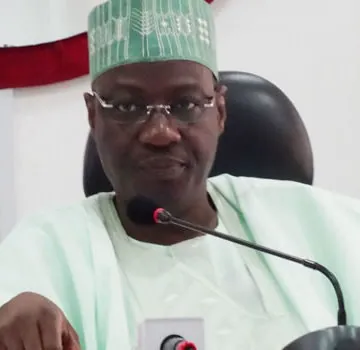Alhaji Lanre Daibu, former Chairman of the Kwara State Universal Basic Education Board (KWSUBEB), testified before a Kwara State High Court in Ilorin on Thursday that a N1 billion loan obtained from the board in 2013 was utilized by the state government to offset salary arrears for workers and pensioners.
The court, presided over by Justice Mahmud AbdulGafar, is hearing a case of alleged diversion of N5.78 billion KWSUBEB funds involving former Governor Abdulfatah Ahmed and his then Finance Commissioner, Demola Banu.
Daibu, a lawyer and witness for the Economic and Financial Crimes Commission (EFCC), told the court that neither Ahmed nor Banu were signatories to the SUBEB account.
He explained that the loan request came after Banu approached the board to highlight the state government’s financial difficulties and the urgent need to pay owed salaries and pensions.
“The then Commissioner for Finance, Mr. Banu, explained the paucity of funds in the government’s coffers. The board met, sought a written commitment from the state government, and approved the release of the N1 billion loan,” Daibu narrated.
He added that the state government had promised to repay the loan from monthly revenue allocations, but the funds remained unpaid by the time he left office and the board was dissolved.
Under cross-examination by Kamal Ajibade, counsel to the former governor, Daibu confirmed that his statement to the EFCC was made under caution as a suspect.
He clarified that the N1 billion was transferred to the state government’s salary account, not to the personal accounts of either defendant.
Also testifying was Mr. Benjamin Sehinde Fatigun, a retired Permanent Secretary in the Ministry of Finance.
Fatigun corroborated Daibu’s account, stating that the ministry had generated a memo to the governor proposing solutions to the state’s salary payment challenges in 2015.
“Monthly FAAC allocations were unstable at that time, causing difficulties in paying salaries,” he said. “SUBEB was identified as a quick fix, and the loan was borrowed to augment salaries for civil servants, teachers, and pensioners.”
Like Daibu, Fatigun emphasized that the N1 billion was deposited into the state’s salary account, not the personal accounts of Ahmed or Banu.
The case continues to unfold as the EFCC seeks to establish whether the funds were misappropriated, while the defense maintains that the loan served a legitimate public purpose. Further proceedings are expected to shed more light on the matter.















